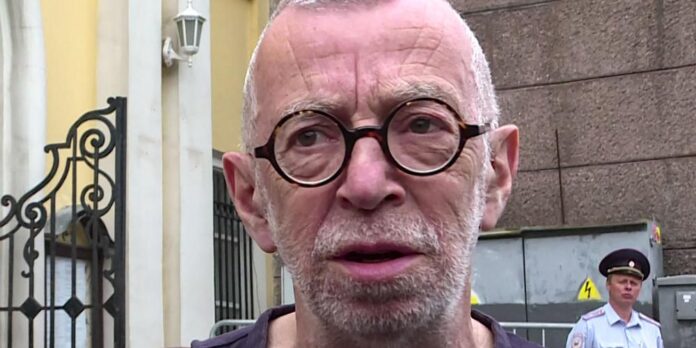Hit in Moscow by a driver on a pedestrian crossing, the 76-year-old Russian dissident poet revealed himself in the new Russian underground scene in the 1970s.
Russian poet Lev Rubinstein, a figure of Soviet dissidence and critic of the Kremlin, died Sunday at the age of 76, his daughter announced, six days after being hit by a car and seriously injured in Moscow. “My dad, Lev Rubinstein, died today,” wrote Maria Rubinstein on her blog on the “Live Journal” website.
Lev Rubinstein, whose work was praised in Russia and the West, was hit on January 8 by a motorist while crossing a street in the capital, then hospitalized in very serious condition.
The Moscow Transport Department said the driver failed to slow down before a pedestrian crossing and hit the poet, specifying that, according to preliminary data, the car owner had been involved in 19 traffic violations during the Last 12 months.
Avant-garde
Born in 1947 in Moscow, a librarian by training, Lev Rubinstein was one of the figures of the Soviet underground literary scene of the 1970s and 1980s, a “new avant-garde” aiming to be inventive and insolent. He was considered one of the founders, in the 1970s, of the Moscow “conceptualist” movement, which mocked the official doctrine of socialist realism and wanted to go against it.
Attached to rhythm, Lev Rubinstein had created a separate genre, the “text-on-card”, relating to both poetry and theater: the poet read short sentences on stage, aloud, written on cards perforated. The practice, inspired by his daily life as a librarian and reference to the sinister bureaucracy of the Soviet era, mixed performance, absurd comedy and improvisation. With the idea of shaking off the numbness of Sovietism.
Opponent
The poet had not hidden his hostile opinions against the Putin regime, denouncing the war in Chechnya, the 2014 annexation of Crimea, political repressions, human rights violations, and participating in opposition demonstrators. In March 2022, with other Russian writers, he signed an open letter calling the large-scale attack on Ukraine by the Russian army a “criminal war” and castigating the Kremlin’s “lies”.
The Russian NGO Memorial, specializing in the defense of human rights and the preservation of the memory of victims of Soviet persecution, welcomed “an incisive descriptor of several eras of Russia”. In a press release, Memorial, actively supported during his lifetime by Lev Rubinstein, affirms that he expressed in his work “a perception of everyday life that is brusque and poetic, sad and insightful, full of self-deprecation”.
“They did not arrest or torture Rubinstein, they did not poison him,” adds the NGO co-holder of the Nobel Peace Prize in 2022, banned by the government at the end of 2021. “But his tragic death, shortly before the two years of the great catastrophe (the attack in Ukraine, Editor’s note), seems symbolic. » “Today’s Russia leaves no room for free citizens and poets. She doesn’t see them on pedestrian crossings,” concludes Memorial.
This article is originally published on sudouest.fr




